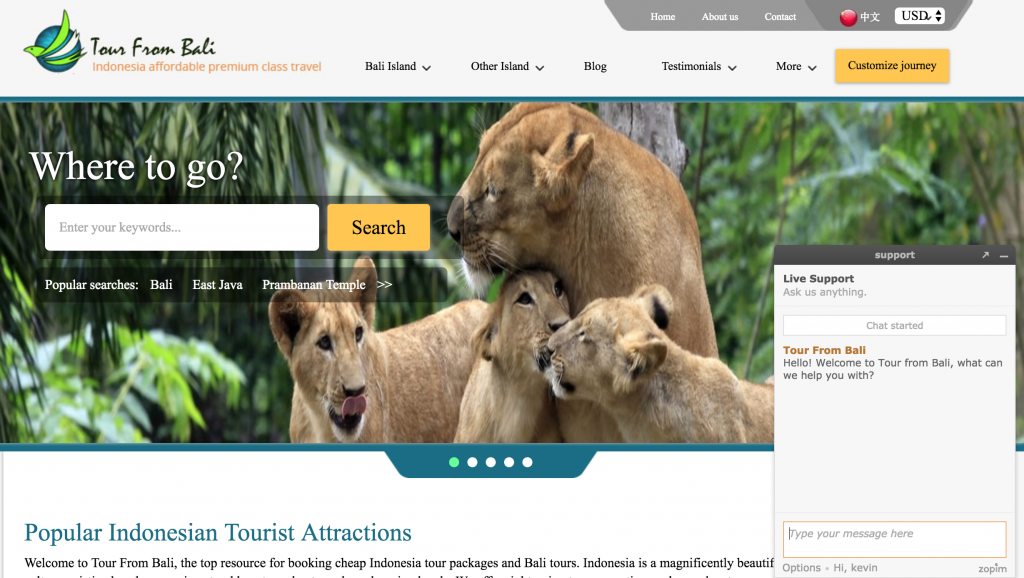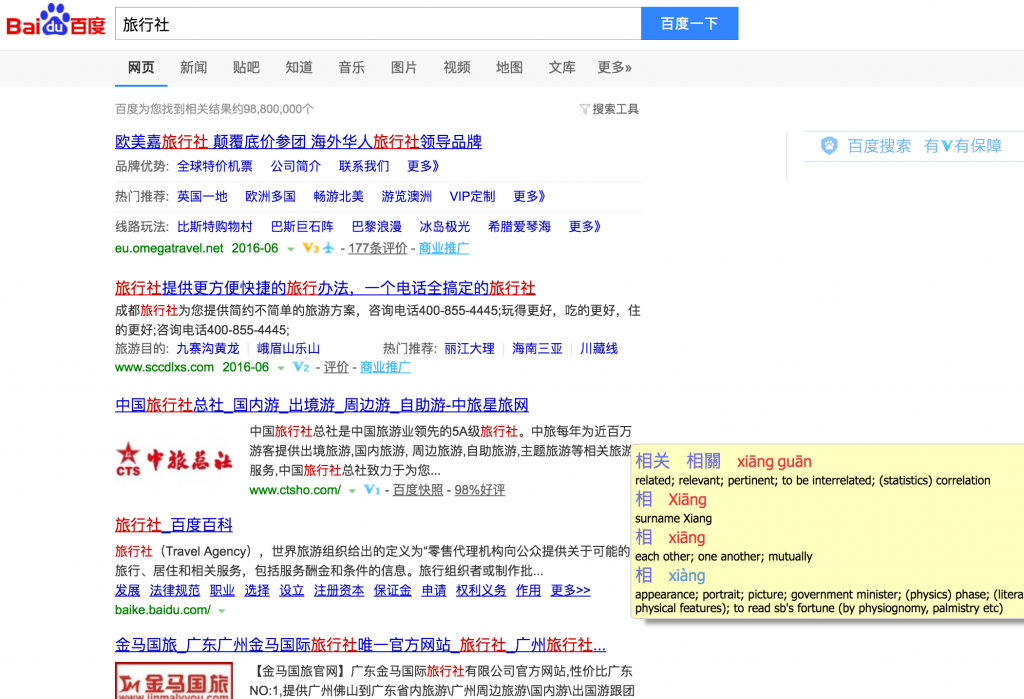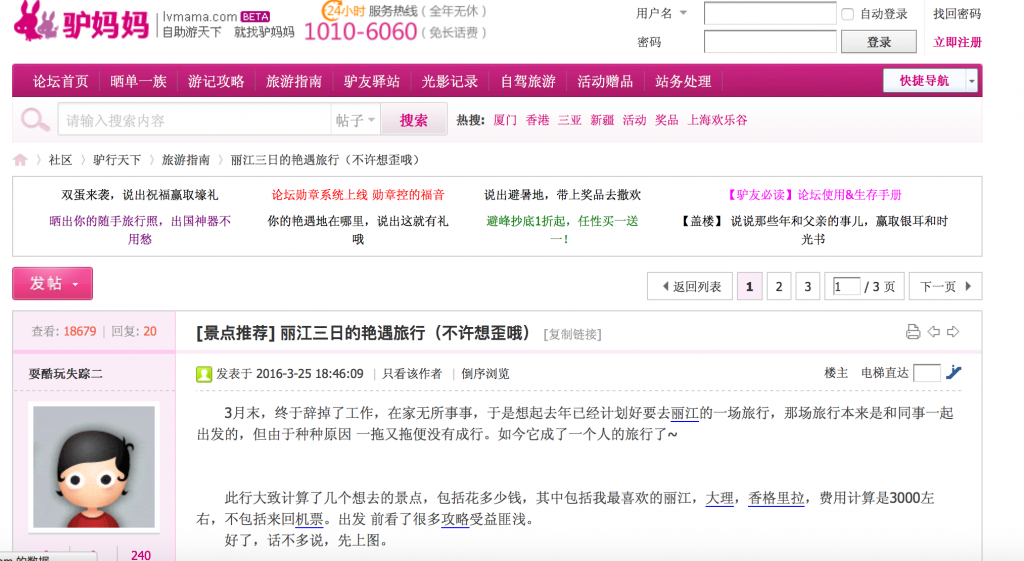Are you a travel agency trying to enter the Chinese market?
Are you a Travel Business and want to get more Chinese Client ?
We can fully understand your desire because China is the world’s largest outdoor market.
However, it should be noted that if you want to build a reliable travel agency in China, you need to tailor your strategy and go online.
Let’s start with a definition of lead generation …
Lead Generation is the set of actions to attract visitors and turn them into potential customers.
These leads may or may not turn out to be prospects. A lead is a Chinese tourist asking for a quotation => or information
A lead goes beyond simple advertising or marketing contact or there is normally a more or less advanced identification and qualification of the commercial contact.
A lead would be for example for a company, a site visitor who requested a brochure. It could also be someone who asked for a recall.
These leads all have points in common : you have access to their personal information such as email address, name, phone number or even address. This information allows you to dive deeper and contact them with a personalized offer.
MARKETING TO CHINESE TOURISTS : WHAT ARE THE STEPS TO BE FOLLOWED?
STEP 1: BE ONLINE
China is one of the most connected countries in the world.
It is estimated that there are more than 660 million Internet users in Mainland China. This represents about half of the population.
They also spend about 40% of their 25 hours per week on the Internet. The first step to reach these customers should be by creating a website.
– Create your website : that will have to follow some kind of “protocol” to make sure it will be easy to find.
– 24-hour customer service : to answer all questions 24 hours a day.
You can use several features such as “Tour From Bali” (see below) by installing and dedicating an online team to chat live.
STEP 2: BE MORE VISIBLE
If you want to be visible on the Chinese website, you must be viewable.
To be searched, you need to rank well on the most used search engine in China, which is Baidu (a Google for France)
As other Western search engines (Google for example) are not allowed in China (by China Great Firewall), Baidu owns 80% of the market share of search engines in China.
They have more than 650 million users of mobile search.
Needless to say, if you rank on the first page, see the second page, you will have access to a huge pool of traffic.
Get a good visibility on Baidu : SEO
To get a good ranking on Baidu, you need :
– Get Relevant Keywords on your website
– Optimize your site for Baidu.
– Be aware of the specific requirements of Baidu that are in harmony with Chinese government regulations (certain contents are forbidden, for example).
– Use internal and external backlinks that are of fundamental importance for SEO. Analyzing links that point to a site is indeed one of the main criteria of relevance of Google. The engine uses these elements to position a site in its search results.
– Use PPC (pay-per-click) which is an advertising model used by websites, in which advertisers pay the web host only when someone clicks on it
As you can see above, if you go to Baidu and type “travel agency”, Omega Travel ranks first, even if it is a foreign company. Marketing to Chinese tourists always start with search engine
STEP 3: PARTICIPATE YOUR MEMBERS VIA THE SOCIAL NETWORKS
It is estimated that about 9 of the 10 Chinese Internet users have at least one social network account.
Like search engines, China has its own version of social networking platforms.
The most famous social media in China are WeChat, Weibo, Qzone, QQ and Ren Ren.
– WeChat is an instant audio and text messaging application that offers special features to businesses if needed. There are more than 850 million WeChat users around the world.
On WeChat, you can send push notifications to your followers and share valuable content in text, video or images.
In order to create prospects, you must publish relevant and interesting content that will encourage Chinese Internet users to share, comment or love. Hire them and some of them can be prospects for your travel agency.
– Weibo is a microblogging platform like Twitter in Western countries. They have more than 250 million active users.
If you really want to connect with Chinese customers, you will need to be on WeChat and Weibo.
You can create an official account on both platforms.
Example: Official account omega europe
Omega Europe’s official account provides contact information and works 24 hours a day. (This reassures the Chinese)
Do not forget to use your social media to spread your website by sharing your QR WeChat and Weibo code online and offline.
STEP 4: OCCUPY YOUR ONLINE REPUTATION
Now that you have:
– A solid foundation
– A large volume of traffic to your website
– Social Media Platforms
Next step of your Marketing to Chinese tourists strategy …
You have to take care of your reputation online. Why?
Because of some strong values of Chinese culture, engaging with something with a bad reputation will strongly affect their own reputation and honor.
You can build a strong e-reputation by collaborating with a local marketing agency that will ensure that negative comments are hardly accessible on Baidu.
You can also participate in blogs and forums to ensure that your travel agency has a good image.
There are several forums you can join, such as LVmama, Qyer or Douban.
You can use the LVmama forum for example (see below):
Another good idea is to do public relations online and publish press releases online to communicate about the destinations and services of your travel agencies. You have for example Sina or Travel Sohu for the most famous.
About us !
We are a Lead Generation agency based in China specializing in tourism.
For any request, contact us by e-mail first. 😉







6 comments
Ditaaa
Everything seems to be linked to Baidu SEO and visibility from undercover marketing, thanks!
Dolores Admin
Hey Ditaa,
Yes Baidu SEO, just like google SEO plays an important part of a company’s reputation in China
aram
We want reach the Chinese Market … contact us please
Ally
Great article to attract massive Chines tourists…
I love what you do Gentlemen and share almost all your article. I will move to Shanghai for a new Job, maybe we can meet ?
Eniqo
Do you know that you have more and more tourists to Zimbabwe
http://www.financialgazette.co.zw/chinese-tourists-skirt-zimbabwe/
In contrast, a survey by Hotels.com published in the Chinese International tourists Monitor revealed that the average daily amount spent by Chinese international travellers was 3 324rmb, it is HUGE which translated to about US$543, on accommodation, shopping and sightseeing.
The report said the top end of the Chinese travel market spends as much as 13 000 yuan per day, which is about US$2 124 daily.
This is certainly a market segment any serious tourism marketing board should target; but there appears to be a lack of initiative locally, with authorities directing their efforts towards less important issues like nude cultural dances.
Mona
As someone who has stayed 3 years here in China and Thailand, I personally saw very little what is wrong with the Chinese travellersbehavior, I do not know much shared rooms in the dorms. Most of the habits mentioned above are, unfortunately, the characteristics of the Thais here especially in the north in the city – although this is less true for people in the village areas and in the South. The Thai people here in Chiang Mai waste food and water, drive dangerously and do not seem to make fun of pedestrians, park their motorcycles to block the sidewalk and entrances to parks and shops, Have virtually no concept of customer service, and seem general to have social manners and skills.
There are traditional ways taught to Thai people, but they are not found here in the north in the city, and mostly appear to be problems of modern society, perhaps not having strong ideas about applying the rules Buddhists for non-monks in Thai Buddhism. The Thai people only represent about 50 percent of the population here in Chiang Mai – the others are Myanmar Shan and hill peoples, Thai and Chinese Friends, Muslims, Nepali, Indians and Western expats , But they appreciate their preference And give very few opportunities to members of other working groups, voters, doing business or participating in public life